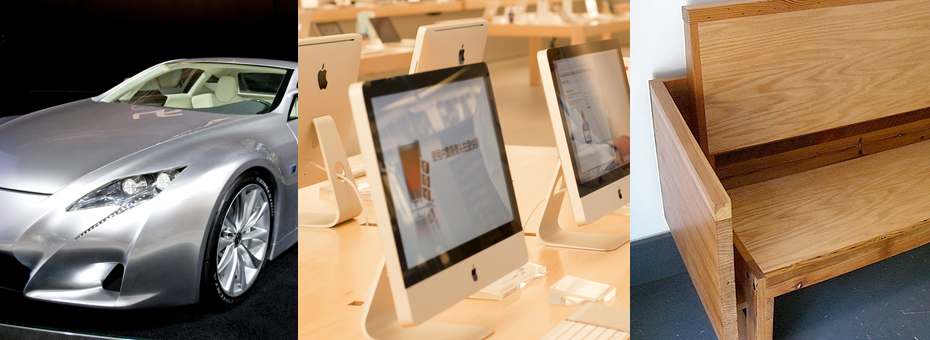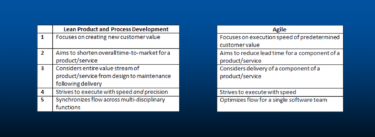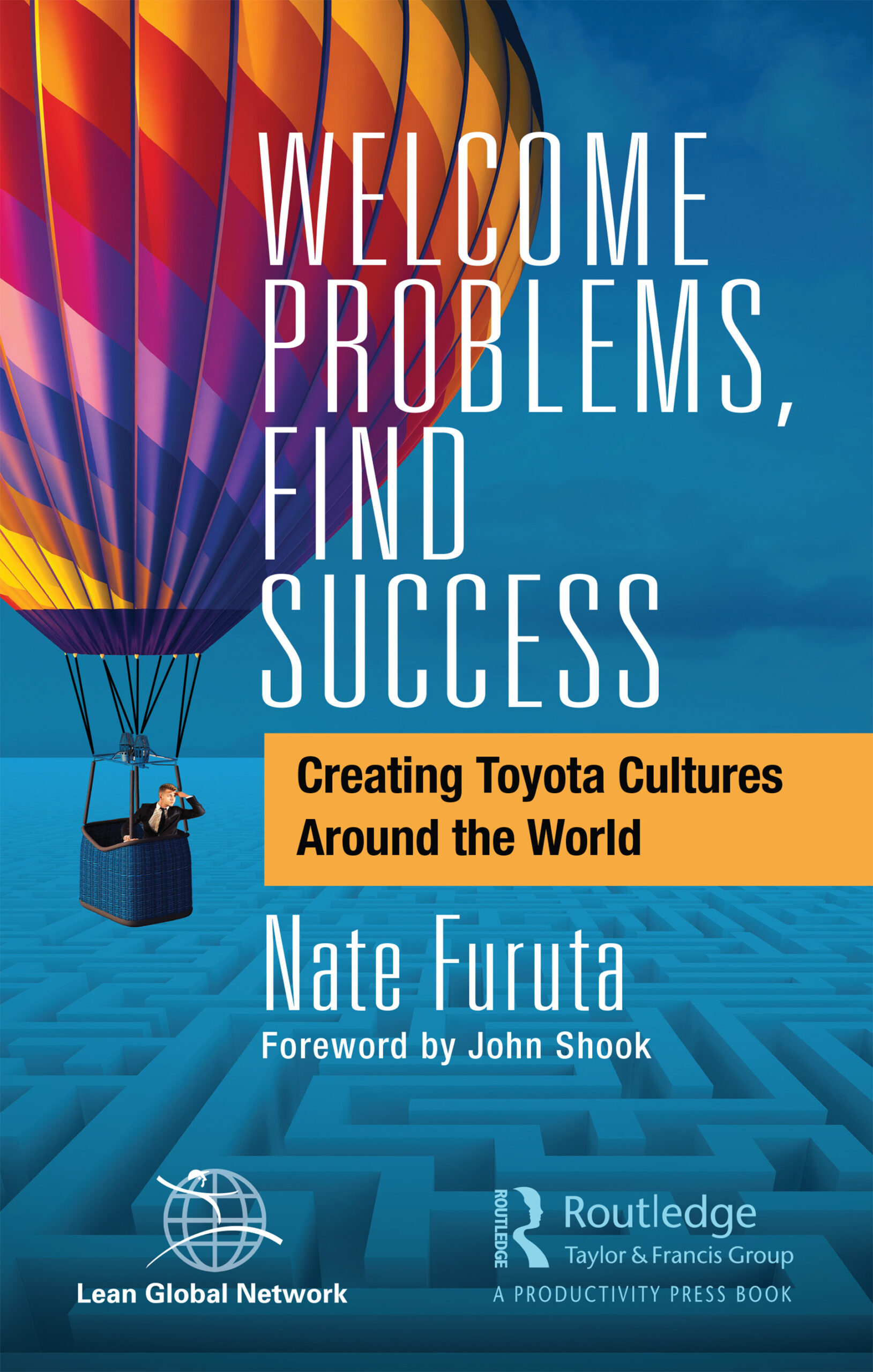Be among the first to get the latest insights from LEI’s Lean Product and Process Development (LPPD) thought leaders and practitioners. This article was delivered to subscribers of The Design Brief, LEI’s newsletter devoted to improving organizations’ innovation capability. It is the first of four in a series focused on craftsmanship or the pursuit of perfection in products and people. Craftsmanship embodies simple elegance, precise execution, and a deep, personal connection to work that transforms both the creation and the creator.
For me it may have started with the 1992 Lexus commercial in which the camera zoomed on a tiny ball bearing rolling effortlessly down the precise margins of the exterior body panels of the ES300. Or perhaps it was in my early work as a journeyman model maker under the watchful eye of highly skilled and demanding craftsmen while we built tools, and hand fabricated and welded precision vehicle bodies. In either case I began to notice that there was a sharp contrast between well-made, crafted products and poorly made ones, and an even greater distinction between the people who made them. I immediately and instinctively knew which one I wanted to make, and be.
To be clear, I am not talking about the pseudo-magical, romantic craftsmanship of a bygone era, but a vibrant creative force that is still creating unique and lasting value in products and driving the development of truly exceptional people across all walks of life right now.
Distinctive Products
You can recognize craftsmanship in products and services by their simple elegance and seamless fit. They embody the elimination of the superfluous and the precise execution of the essential. It is that certain something about a product that says “well made” and actually draws you to it. Like the simple elegance and fit and finish of an Apple device enclosure, an Audi car interior, or a church pew from the “Katrina Furniture Project” (made from hurricane debris) that elicits a deep and emotional appreciation. Great craftsmanship is not just for traditional hard goods either. We see this in Menlo Innovation’s creative and deeply researched user interfaces, the precision movements of a surgeon who has mastered her craft, and even Marcelo Garcia’s exacting Brazilian Jiu Jitsu, all of which leave the observer wide eyed.
This response to precisely crafted products is also apparent in the “now I get it” reaction I have seen so many times from overworked and previously skeptical engineers after they see the physical result of their hard work to craftsmanship standards for the first time. Far from magical, the process of creating truly exceptional products is the outcome of rigorous and objective performance standards for both people and products. It requires incredible attention to a thousand details, an obsession with excellence and especially the seamless collaboration of design, engineering and manufacturing to produce something of exceptional value.
Exceptional People
There is an innate desire in most people to do a job well for its own sake. This is the spirit of craftsmanship. It is universal and it connects people to their work in a very personal way by conferring pride and meaning to their work. Consequently the achievement of mastery in ones work brings an internal joy only possible by accomplishing something incredibly difficult – and personal. To be sure, this arduous journey has a lasting impact on those who choose to follow this path. While rare, craftsmen exist in every profession and can be recognized by their understated confidence, self-reliance and incredible focus. Each movement or activity is consequent with little wasted energy creating a kind of rhythm or flow. They are not perfect, far from it, and no one knows that better than they do. But this fact does not keep them from the pursuit of perfection. And that makes all the difference.
But a word of warning. In a world of “shortcuts to the top”, “instant acclaim”, and “pivoting”, this journey will require a great deal of hard work and loads of perseverance. Yet as lean thinkers, value creation and the pursuit of perfection are after all, what we are all about. The spirit of craftsmanship is a key component to creating something of lasting value and the pursuit will change the character of both the work and the worker, forever. Is there extra cost for craftsmanship? Not necessarily, but there is certainly a cost to ignoring it. Remember, in the end, the product we are really working on is ourselves. Make something of lasting value.
Editor’s Note: This article was originally published March 14, 2014.
Designing the Future
An Introduction to Lean Product and Process Development.







